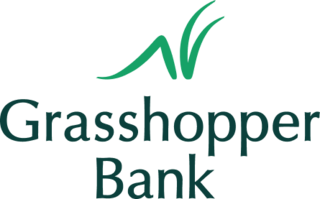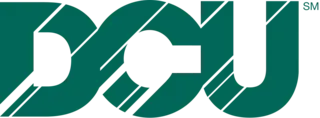Best Banks for Small Businesses for 2026
Whether you're a freelancer or own a growing business with dozens of employees, the right bank accounts can help you manage your business better. Some business checking accounts offer robust features that can simplify your bookkeeping, and many financial institutions offer commercial savings, money market accounts or certificate of deposits (CDs) that you can use to grow towards your for future business goals.
Account minimums, fees and annual percentage yields (APYs) vary by institution, so Money researched dozens of leading banks and credit unions to identify the best banks for small businesses for 2026:
- Bluevine – Best Overall
- American Express – Best for Interest-Bearing Checking
- Capital One – Best for Business Savings
- Chase – Best for Mid- to Large-Sized Businesses
- Digital Credit Union – Best Credit Union
- QuickBooks – Best for Sole Proprietors
- U.S. Bank – Best Rates
*Rates and APYs are subject to change. All information provided was accurate as of Oct. 14, 2025.
Bluevine offers a small business checking account that doesn't charge monthly maintenance fees or overdraft fees while not requiring a minimum balance. It is also an interest-bearing account with a 1.3% APY for the standard plan and up to 3.5% APY for upgraded plans. Bluevine's ATM network features 120,000 locations, and although the bank doesn't have savings accounts, it offers business owners loans and credit cards.
The bank provides its business checking customers with up to $3 million in FDIC insurance, and its Bluevine Line of Credit can provide up to $250,000 in business loans. Bluevine receives the highest Trustpilot rating of all the banks Money reviewed for business accounts with 4.3 stars out of a possible 5. Through its business banking platform, Bluevine provides unlimited free invoicing and payment links, which allows business owners to accept credit card, digital wallet and ACH payments.
- No maintenance or overdraft fees
- No minimum balance requirements
- Interest-bearing checking account
- No branch locations, online only
- No savings accounts
American Express offers interest-bearing business checking accounts that earn a high APY without monthly maintenance fees. Its business checking account is a good option for newer businesses, solopreneurs and contractors. There is no minimum requirement to open an account, and the account can currently earn up to 1.30% APY on balances up to $500,000. Plus, accounts can earn Membership Rewards for eligible business debit card purchases, and members can redeem those points for deposits or travel.
However, American Express doesn't offer business savings accounts or CDs. If you are specifically interested in those types of products, you will need to use another bank or credit union. Additionally, it operates online-only and doesn't have branch locations.
- Checking accounts earn a higher-than-average APY
- No monthly maintenance fees
- Potential to earn rewards
- No business savings options
- High average balance requirement to earn account bonus
- Foreign transaction fees apply to debit transactions
Capital One has one of the highest APYs available on savings accounts (it also offers three tiers of business checking accounts). The bank gives its customers 3.50% APY, and that rate is guaranteed for at least three months from account opening. Capital One is one of the largest banks in the country, and with its savings account, you can earn a higher-than-usual APY. The account also has a low monthly fee of $3. If you maintain an average monthly balance of just $300, you can qualify for a fee waiver, too.
To qualify for the highest APY possible, you must have a balance between $10,000 and $10 million; a lower rate applies to balances below or above those thresholds. Its business savings includes up to six free account withdrawals per monthly statement cycle, and the bank provides free overdraft coverage. Capital One also offers three tiers of business checking accounts, but it doesn't have money market accounts or CDs.
- High APY on savings accounts
- Low balance requirement to qualify for fee waiver
- No cost overdraft coverage
- $3 monthly fee without fee waiver
- Lower APY on balances under $10,000
- No business money market accounts or CDs
If you have a mid- or large-sized business, Chase offers multiple checking options. With the Chase Platinum Business Checking account, you can take advantage of perks like fee-free cash deposits, in-person card acceptance through Chase Payment Solutions and no charge on electronic deposits or wires. Mid- and large-sized businesses — particularly those that handle cash — can benefit from these account options. Chase Business Complete Checking provides account holders with up to $500 with qualifying activities, and all three of the bank's business checking accounts waive monthly fees if minimum balance requirements are met.
The bank has an extensive branch and ATM network, making it easier for cash-based businesses to deposit bills to their account. If you prefer in-person assistance, Chase operates over 5,300 branches nationwide, along with 15,500 ATM locations. Chase's fees can be relatively high, though, and you'll need to maintain a fairly large balance to qualify for fee waivers. So smaller businesses or sole proprietors may want to consider other options with lower costs. Additionally, its business checking accounts do not pay interest.
- Offers debit cards for employees
- Savings account fee waivers when linked to a business checking account
- Large branch network
- High monthly fees on some accounts
- High balance requirement for fee waivers
- No interest-bearing checking accounts
Digital Credit Union (DCU) offers business banking and digital banking solutions for small business and business owners, with an interest-bearing business checking account that currently offers up to 0.10% APY. The credit union does not require a minimum account balance, does not charge monthly maintenance fees, and provides unlimited free check writing and up to four debit cards per account. DCU also offers business savings accounts.
In order to join DCU, you must be the family member of an existing member, work for or have retired from participating employer, belong to a handful of organizations or live in select areas of Massachusetts. Despite having only 23 branch locations in Massachusetts and New Hampshire, the credit union provides members access to over 5,600 shared credit union branches and boasts an ATM network with 80,000 locations.
- Interest-bearing business checking accounts
- No minimum balance requirements or monthly fees
- Large shared credit union ATM and branch network
- Somewhat restrictive eligibility requirements
- Limited branch locations
QuickBooks may be best know for its accounting software, which helps small businesses manage their finances. But few people know that the company also provides banking services. Specifically, its free business checking account has no monthly fees, no overdraft fees and doesn't require any minimum balances. Members are currently eligible for up to 3.00% APY on balances held across QuickBooks' Envelopes — savings tools held inside their checking account.
Additionally, self-employed customers are eligible for discounts on bookkeeping services, and the business checking account features the ability to send and track invoices that integrate with QuickBooks. While the financial services company doesn't operate any branches, its ATM network includes 19,000 locations.
- Self-employed customers eligible for discounts on bookkeeping services
- High APY on business account
- No overdraft or monthly fees, no minimum balance requirements
- No branch locations
- Fees for card, digital wallet and ACH transactions
- Fees for cash deposits
U.S. Bank offers customers business checking, savings, CDs and money market accounts. Its business savings accounts currently provide 0.05% APY, while its business CDs — which have terms ranging from 14 days to five years — currently have APYs as high as 3.97%. However, higher CD amounts are subject to lower APYs.
U.S. Bank has an ATM network with 40,000 locations and operates 2,000 branches in 26 states. However, residents in all 50 states are eligible to open accounts. Both its business checking and savings accounts require a $100 minimum opening deposit.
- Offers business checking, savings, CDs and money market accounts
- Monthly fees waived by satisfying certain criteria
- Branches in 26 states, but open to residents in all 50 states
- Higher CD amounts subject to lower APYs
- Monthly fees for certain business accounts
- Minimum opening deposit requirements
How we chose the Best Banks for 2026
To determine our list of Best Banks for 2026, Money staff evaluated hundreds of the largest retail banks, credit unions, regional and state banks, ranked by assets, and 20 of the most popular online banks. We then compared opening balance requirements, interest paid, fees, and features to determine our top picks.
To select the best banks for small businesses, we evaluated and compared dozens of data points, including their account options, minimum balance requirements, fees, APYs, perks and branch and ATM access. Priority was given to banks with no-fee business checking options, as well as those that had robust mobile apps for business owners to manage their accounts.
You can read our full methodology here.














